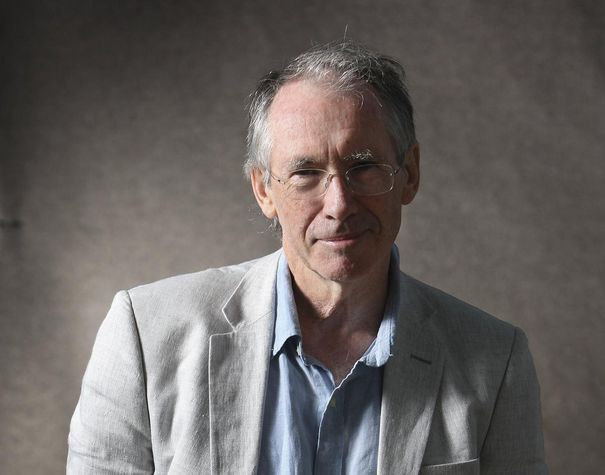Note: If you wish to receive, via e-mail, (1) my weekly newsletter or (2) daily copies of these posts, notify me at [email protected] and indicate which you would like. I promise not to share your e-mail address with anyone. To unsubscribe, send me a follow-up email.
Friday
I’m traveling at the moment and so will confine myself today to sharing an upbeat passage I liked from Ian McEwan’s novel Nutshell (2016). It’s a very strange work that tells a modern version of the Hamlet story from the point of view of a Hamlet who is still in utero. Part of the inspiration for the novel comes from Hamlet’s declaration, “Oh God, I could be bounded in a nutshell and count myself a king of infinite space—were it not that I have bad dreams.”
In a crazy personal account that reminds me of Tristram Shandy, we see a fetus that has consciousness, language, and adult knowledge while being alert to the sensory clues that come to him via his mother’s biology and through the walls of her womb. In the process, he picks up on Claude and Trudy’s plan to murder his father. If ever there was a novel that requires willing suspension of disbelief, this is it, but once you suspend, there’s fun to be had in identifying the Hamlet allusions and other Shakespeare passages.
I’m sharing a passage where fetus Hamlet protests a grim 20-minute lecture that his mother is listening to on the radio. After delivering a long list of things going wrong in the world, the expert concludes that (in Hamlet’s summation),
these disasters are the work of our twin natures. Clever and infantile. We’ve built a world too complicated and dangerous for our quarrelsome natures to manage. In such hopelessness, the general vote will be for the supernatural. It’s dusk in the second Age of Reason. We were wonderful, but now we are doomed. Twenty minutes. Click.
Hamlet, however, counterargues with a surprisingly optimistic view of things that I share to brighten your day. He starts with a takedown of pessimism:
Anxious, I finger my cord. It serves for worry beads. Wait, I thought. While it lies ahead of me, what’s wrong with infantile? I’ve heard enough of such talks to have learned to summon the counterarguments. Pessimism is too easy, even delicious, the badge and plume of intellectuals everywhere. It absolves the thinking classes of solutions. We excite ourselves with dark thoughts in plays, poems, novels, movies. And now in commentaries.
Then he lists what’s right with the world:
Why trust this account when humanity has never been so rich, so healthy, so long-lived? When fewer die in wars and childbirth than ever before—and more knowledge, more truth by way of science, was never so available to us all? When tender sympathies—for children, animals, alien religions, unknown, distant foreigners—swell daily? When hundreds of millions have been raised from wretched subsistence? When, in the West, even the middling poor recline in armchairs, charmed by music as they steer themselves down smooth highways at four times the speed of a galloping horse? When smallpox, polio, cholera, measles, high infant mortality, illiteracy, public executions and routine state torture have been banished from so many countries. Not so long ago, all these curses were everywhere.
The list of modern blessings continues:
When solar panels and wind farms and nuclear energy and inventions not yet known will deliver us from the sewage of carbon dioxide, and GM crops will save us from the ravages of chemical farming and the poorest from starvation? When the worldwide migration to the cities will return vast tracts of land to wilderness, will lower birth rates, and rescue women from ignorant village patriarchs? What of the commonplace miracles that would make a manual laborer the envy of Caesar Augustus: pain-free dentistry, electric light, instant contact with people we love, with the best music the world has known, with the cuisine of a dozen cultures. We’re bloated with privileges and delights, as well as complaints, and the rest who are not will be soon.
The novel’s whipsaw shift from pessimism to optimism may be inspired by Hamlet’s own summary on the lows and highs of humankind:
I have of late, (but wherefore I know not) lost all my mirth, forgone all custom of exercises; and indeed, it goes so heavily with my disposition; that this goodly frame the earth, seems to me a sterile promontory; this most excellent canopy the air, look you, this brave o’er hanging firmament, this majestical roof, fretted with golden fire: why, it appeareth no other thing to me, than a foul and pestilent congregation of vapours. What a piece of work is a man, How noble in reason, how infinite in faculty, In form and moving how express and admirable, In action how like an Angel, In apprehension how like a god, The beauty of the world, The paragon of animals. And yet to me, what is this quintessence of dust?
So take your choice: Quintessence of dust or paragon of animals. Pessimism or optimism?
